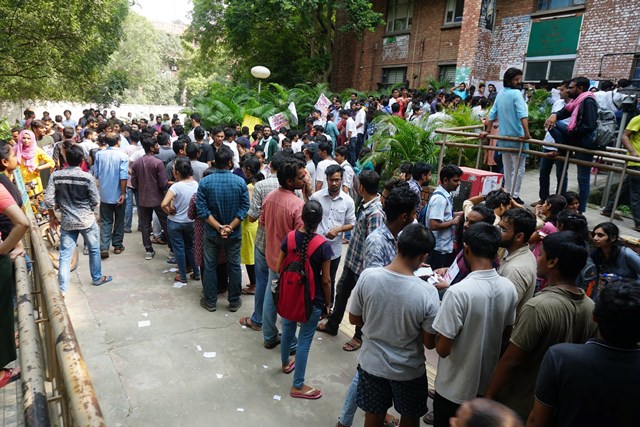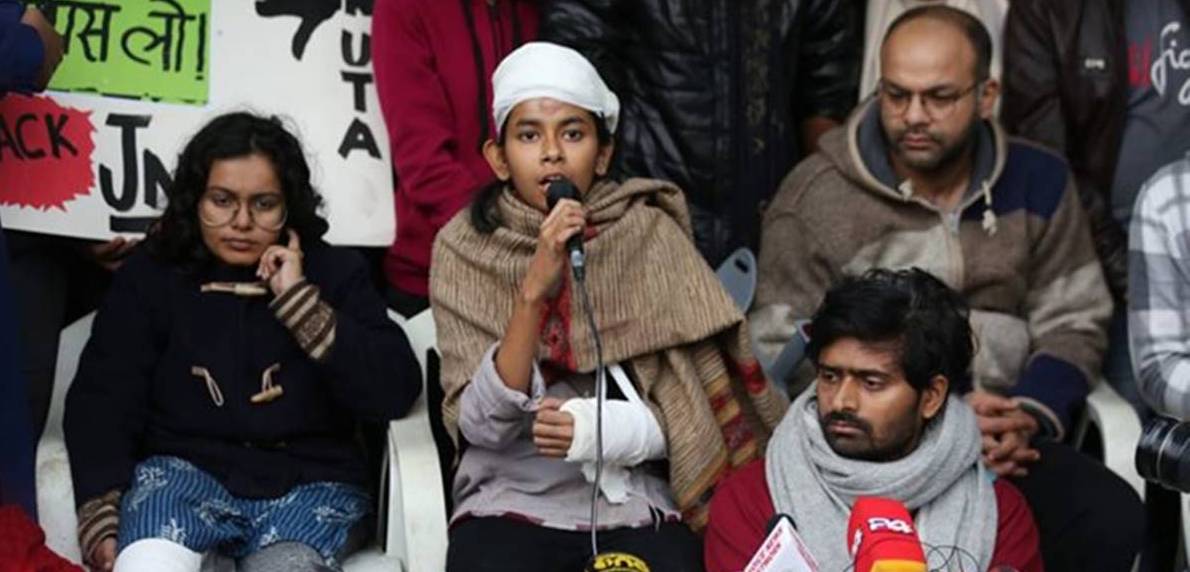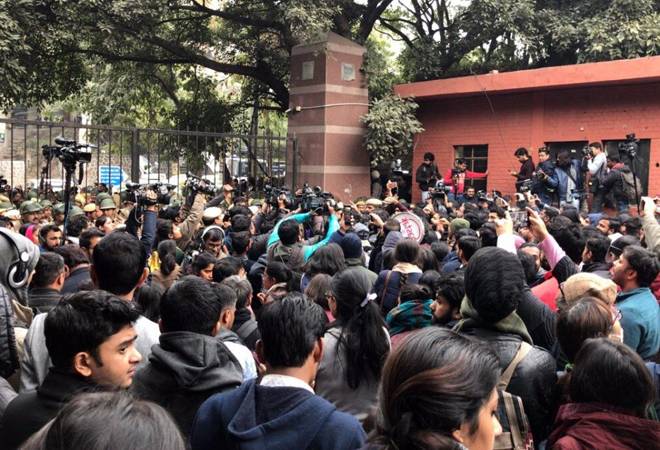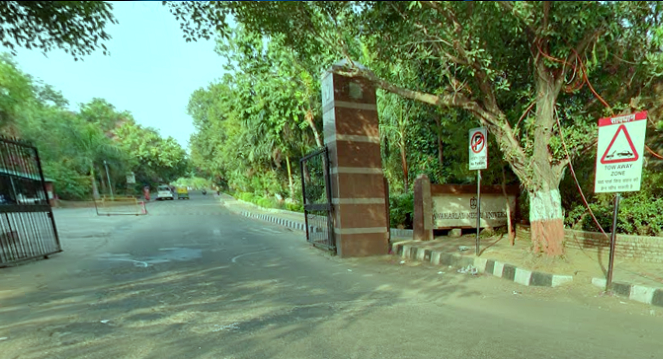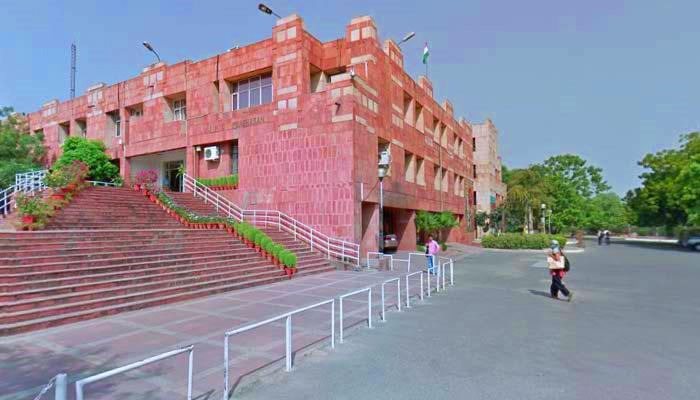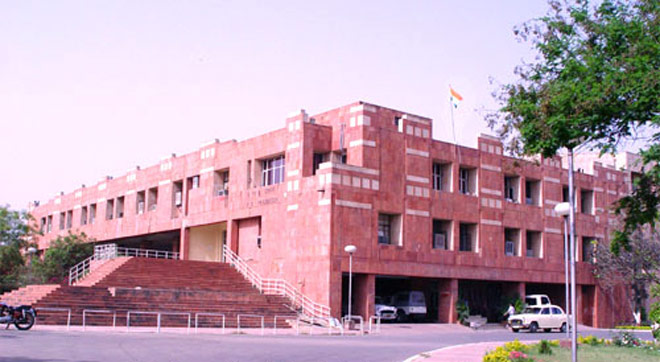Amidst the uproar echoing on campus against the fee hike of hostel accommodation, the provocative refrain of news channels and the general public is making the rounds. Some believe it is time for JNU students to come out of their “bubble” and enter the “real-world”; some question in disbelief if Rs 6000 per month is really unaffordable, some comment that JNU students must pay the same price for education like other institutions and give up their “privilege” of living on “tax-payers money” and some just out-rightly dismiss the protest as yet another “anti-national” tantrum of students who are more interested in rajneeti than padhai-likhai.
So, how does one even begin to engage with these remarks, accusations and opinions?
One way is to explain, to present arguments and give statistics as evidence.
For instance, about 26.5% of JNU students (according to the university’s official Annual Report) belong to families who earn Rs.6000 per month. Around 3318 students come from families whose annual income is less than Rs1,44,000. Isn’t it a case of severe moral turpitude to ask families to spend all or half of their family income on education of a single child? It is precisely because of the subsidized nature of education in JNU that thousands from all sections of society have been able to afford education at a premier university. Coming to the hullabaloo over protests and agitation, how do students communicate their demands and requests to an administration which refuses to talk in person and believes in communicating through notifications and press releases? How does one make oneself heard in a non-dialogic space of the university, if not for marching in protests? And if the protest is seen as just rajneeti, then I believe it is the best form of politics there is because if our degrees can’t teach us to raise our voices and mobilize ourselves for things we rightfully deserve, then what purpose does that education serve anyway? When it comes to the favorite refrain of ‘whataboutery’ and comparing fees of JNU with other educational institutions, it would help to understand that the idea of a ‘public’ university differs remarkably from the ‘private’ on account that it is the State that shoulders the responsibility to provide public goods like education, in a manner that is accessible to all.
And if it is only these facile comparisons that one seeks, why not compare the subsidized accommodation and food our MPs and MLAs receive as representatives of the public with the market price of housing and food? And instead of pointing out how “privileged” JNU students are to be living off of tax-payers money, wouldn’t it be a productive exercise to create a cross-tab which assesses the salary of our public officials and interrelates it with the work and contributions they make as elected officials? But largely, why is it that the tax-payers don’t raise concern when crores are spent on statutes and political advertising but raise eyebrows if their money is spent on educating the most marginalized, the weaker sections and minorities of society?
As a student of sociology, I believe the trouble lies in the way we have succumbed to the rationality of the market. Economically speaking, the neoliberal rationality gives precedence to the private over the public. The state recedes, shirks off its responsibility and believes in the ‘efficiency’ of the market to stabilize inequalities. No wonder, we see a cornucopia of private institutions across the country with sky-rocketing fees and an equal descaling of the public universities. Culturally and socially, the neoliberal rationality moulds us into individuals who seek solutions to social problems through self-responsibility, who believe in entrepreneurialism and valorise competitiveness as a virtue. The neoliberal rationality is so pervasive and internalised that the inequality is normalised. It reduces our ability to empathise because everyone is seen as a potential competitor to the same resources. It mars our capacity to see the structures of oppression and in turn incites us to blame the marginalised for their lack of ‘hard-work’ and ‘merit’ as the cause of their backwardness. It commodifies everything, puts an exchange value on public resources and makes it a commodity on the market that can be bought and sold. Even education, being impinged upon by this neoliberal rationality becomes a priced commodity, inaccessible to most and a dear privilege of the few. It also hierarchies disciplines by virtue of their market-friendliness. So an MBA is preferred and more sought after than an MA in sociology, because the value of a discipline is reduced to its monetising capabilities.
This market rationality becomes palatable to all aspects of our lives, so much so that we don’t even think twice before paying hefty amounts to access public goods like education. We accept and normalise the market rationality and its virtues of privatisation and commodification. We don’t blame the state anymore for not taking up the responsibility to provide high-quality education and instead find a recourse to exorbitantly priced private institutions. It is no wonder, that when JNU resists this “real world” normalcy and holds the State accountable, it becomes a detestable site and an absolute eyesore for the masses, for it ruffles the functioning of the market rationality.
But even these explanations, arguments and defences fall flat on ears attuned to the acoustics of a neoliberal paradigm. As an urban, middle-class person myself, it took me 3.5 years of JNU to understand my own privileges, to gather the perspective of looking from the eyes of the weakest sections of society, to learn what it means to empathise and support a public cause and to see and critique the social reality for the structures of inequality and discrimination it sustains. How can I make someone understand all this in 3.5 minutes of debate, discussion and fingertip activism?
So, I believe there is another way to make the case. It is to respond with questions instead of explanations. It is to interrogate in a way that allows for self-reflection. So instead of offering more justification and explanation as to why the JNU protest against fee hike is crucial, I would like to raise some questions instead:
1) Why is it ‘normal’ to spend lakhs and even take hefty loans to avail education in this country?
2) Why have we accepted it a ‘reality’ that accessing good-quality higher education is a privileged domain of the few and not the fundamental right of all?
3) How come we don’t have more public institutions of repute that can provide for a decent standard of education in our country?
and last, certainly not the least,
4) Why shouldn’t the State provide for education? What purpose does a State have, if not providing accessible, affordable public good like education to all?

